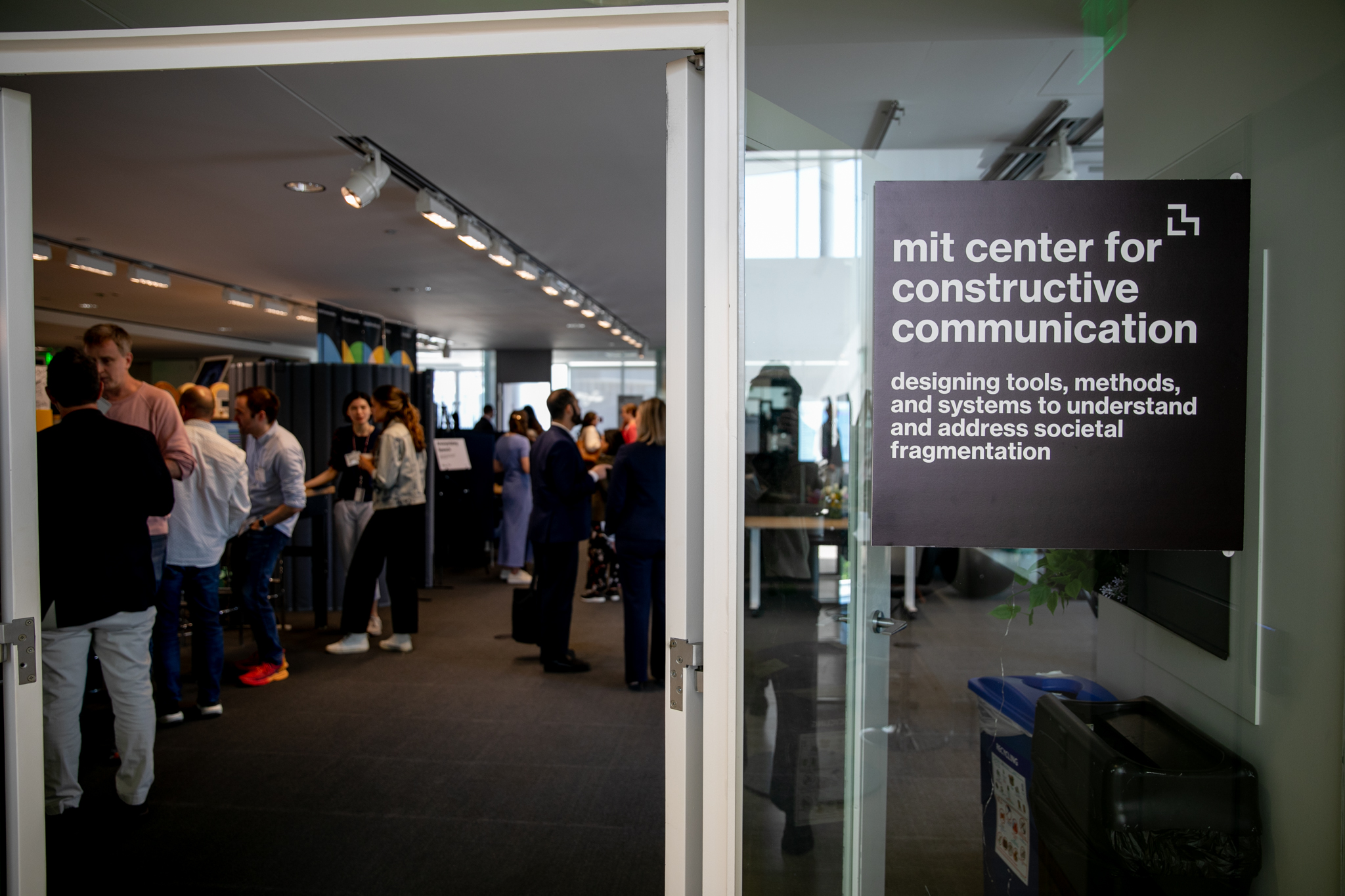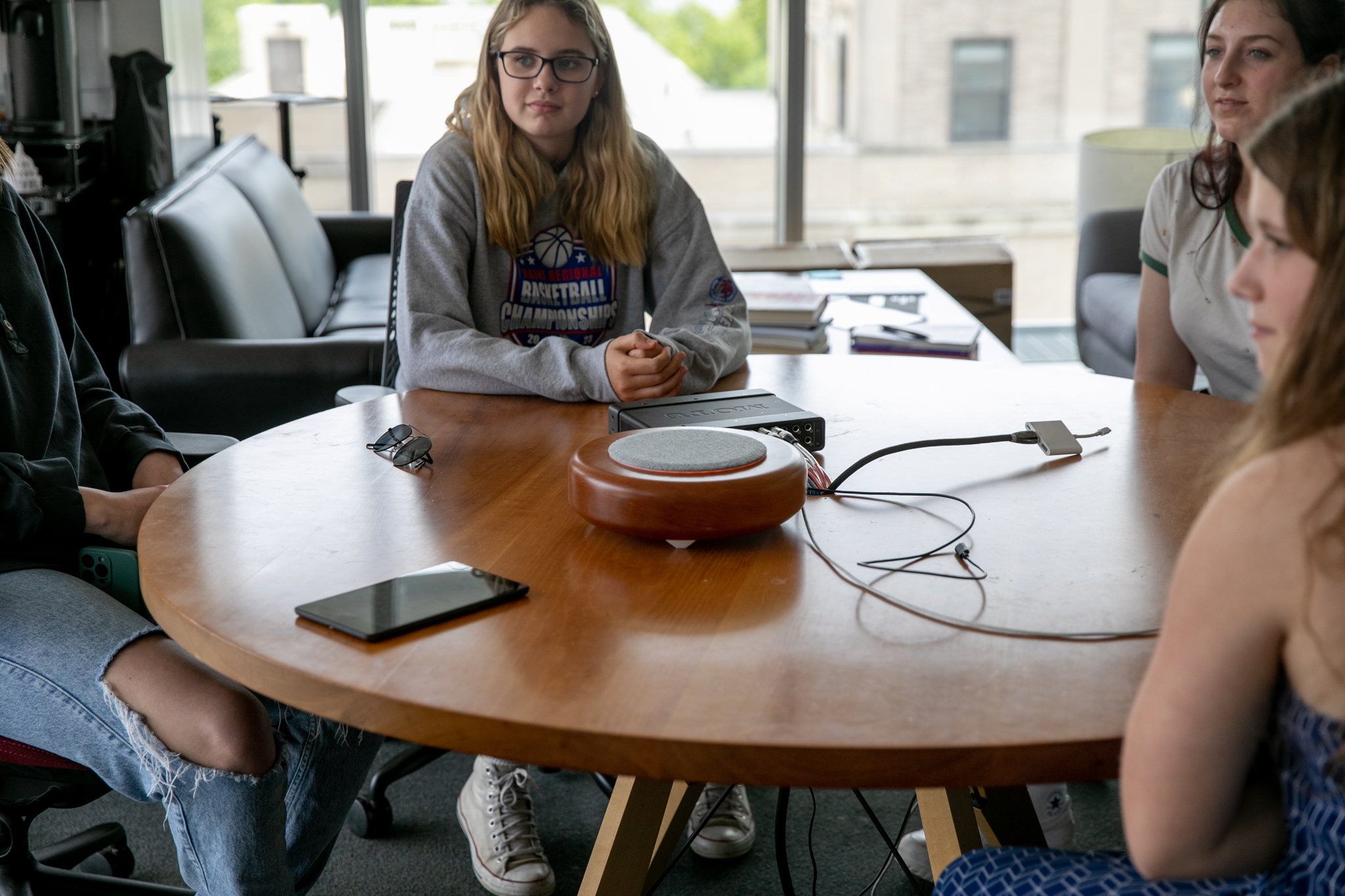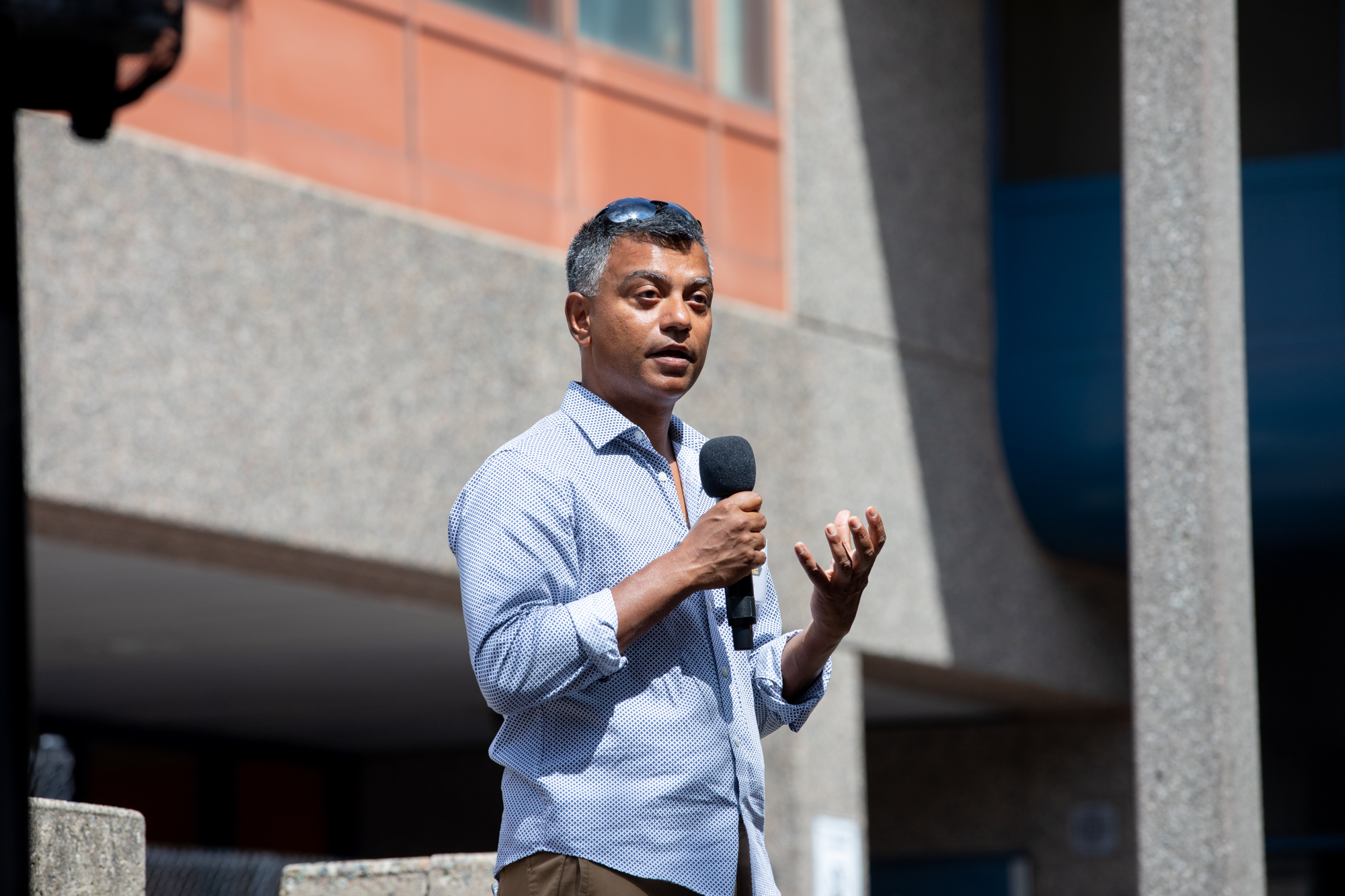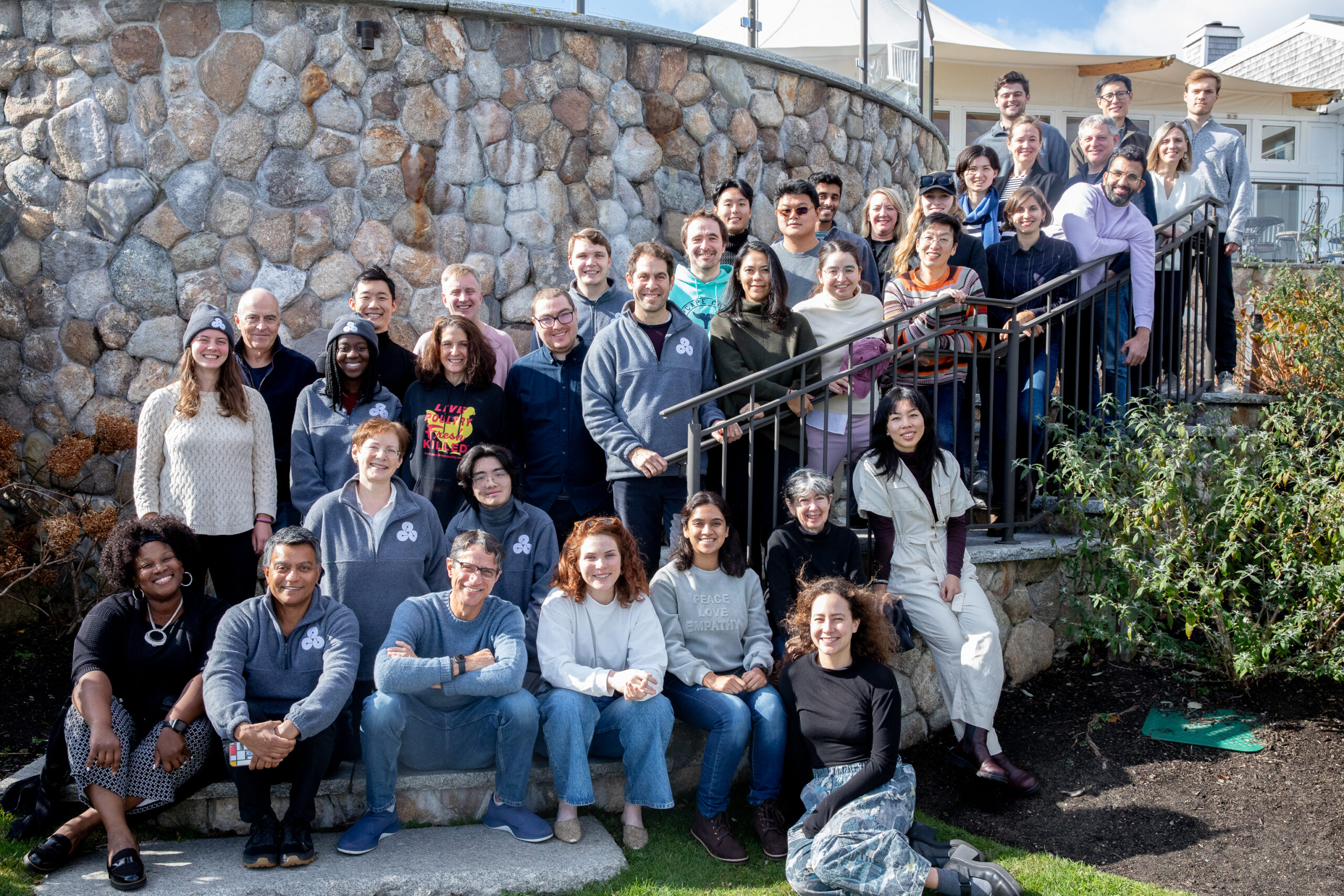About
We believe that hearing the humanity in others through trustworthy communication channels is necessary for democracies, communities, and institutions to function.
Informed by years of social media and media analytics, CCC’s work combines the ancient wisdoms of human conversation with emerging digital technologies to promote shared understanding and trust rather than reinforcing the “side-taking” and binary thinking that too often divides us. Based at the MIT Media Lab and working closely with the non-profit Cortico, CCC brings together researchers in AI, computational social science, digital interactive design, and learning technologies with software engineers, journalists, political scientists, designers, and community organizations.
An important aspect of CCC is its commitment to reach both within and beyond academia to work closely with locally based organizations to launch pilot programs focused on building a culture of listening and dialogue that promotes a sense of shared understanding, empathy, and trust.

Cortico Collaboration
A special CCC field collaborator is Cortico , a non-profit social technology company with the mission of bringing underheard voices to the center of a healthier public dialogue.
Founded in 2016 by Prof. Deb Roy, Russell Stevens, and Eugene Yi, Cortico maintains a unique cooperation agreement with MIT that enables collaboration on IP, prototyping, and field pilots. Prof. Roy currently serves as Cortico’s CEO and board co-chair, and Stevens as treasurer.
Cortico operates the Local Voices Network (LVN) , a speech platform designed to enable bringing communities together for listening, understanding, and sharing. The LVN platform has been at the heart of CCC/Cortico projects in Madison, in Boston, and at MIT – and will continue to be a focus of collaborative research (e.g., conversation analytics), prototyping, and pilots moving forward.

Cortico & MIT Collaboration FAQ
What is the relationship between CCC and Cortico?
A 501(c)(3) nonprofit organization, Cortico maintains a long-term cooperation agreement with MIT for collaboration on IP, prototyping, and field pilots. This agreement, renewed for 10 years in 2022, enables CCC researchers to efficiently transfer research from the lab for deployment into scalable projects in the field. CCC benefits from access to tools and data from Cortico, as well as the opportunity to involve MIT students in on-the-ground social impact work. Cortico, in turn, benefits from access to the full scope of CCC’s research in areas such as creating technologies to facilitate face-to-face human dialogue, developing large-scale language models to aid sensemaking, and designing communications spaces that preserve identity and promote equity.
What is Fora? What is the origin/meaning of the name?
Fora is the technology platform developed and operated by Cortico designed to enhance and amplify dialogue and listening. The purpose of Fora is to create spaces – or forums – for constructive communication. An alternative word for “forums” is “fora,” hence the name of the platform.
How do the responsibilities for moving forward with Fora divide between CCC and Cortico?
CCC is responsible for exploratory research in constructive communication technologies and methodologies, and the application of this research to prototype new tools and methods for constructive communication. Cortico is responsible for the prototyping, design, development, operation, and support of the Fora platform. The two organizations collaborate on prototyping new tools and methods.
What are the Fora releases?
The Fora platform comprises a set of software and hardware products that are designed, developed, operated, and supported by Cortico. All revenues and liabilities related to these products are solely the concern of Cortico. Many of the formative ideas and prototypes that led to the Cortico products can be traced back to research conducted by CCC.
What is the relationship of CCC graduate students to Cortico?
MIT graduate students, research staff, and faculty affiliated with CCC may choose to collaborate with Cortico on prototyping activities if those activities further their research interests.
History
The Center is an evolution and scaling of the Laboratory for Social Machines (LSM), which was established by Prof. Deb Roy at the MIT Media Lab in 2014 and today includes a team of approximately 30 academic researchers, technologists, and humanists. LSM had a traditional research group structure and pioneered work in social media analytics and the design of human-machine systems to support communication and learning.
Examples of LSM achievements from 2014-2020 include:
- A study of the spread of false news that was the cover story of Science magazine and that Altmetrics ranked as the second most influential publication of 2018.
- A tech-assisted coaching system, Learning Loops, for supporting kids’ narrative development that has been successfully piloted with hundreds of participants in collaboration with community organizations.
- The Electome project, which helped US national newsrooms analyze and report on the public conversation about 2016 election issues as revealed in social media, and helped moderators prepare for the Presidential debates. Post-election analysis of fragmented political networks and isolation of journalists led to one of VICE News’ most-viewed stories of the year.
- Beat the Virus, a coalition created in response to COVID-19, to deliver science-grounded public health guidance via social media influencers. LSM social media analytics guided the generation of over 625 million media impressions and 5.5 million engagements with no paid media.

Funding
The primary aim of the Center’s work is to create social benefit, as expressed through our Approach, Lab Projects and Field Projects. The Center also works with commercial collaborators to explore “dual use” applications of research that may be relevant to commercial interests. We only accept funding for work that is aligned with our research and project aims, with a preference for long-term funder relationships.
Founding support for the Center’s launch includes multi-year commitments from Reid Hoffman (general operating support), Project Liberty, McKinsey & Company (for developing tools for modeling stories and audience networks), and the Media Lab consortium. As it grows, the Center will continue to add funding from value-aligned philanthropic, government, and corporate organizations.
